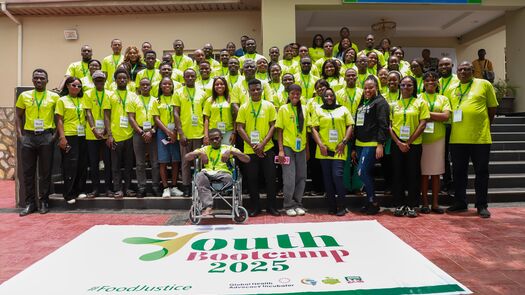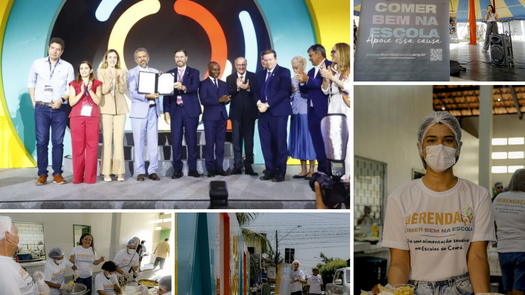November 25, 2025
September 19, 2024
Transforming Food Policies Across Africa - Insights and Outcomes from the 2024 Pan African Legal Symposium on Food and Nutrition Governance

In July 2024, the Global Health Advocacy Incubator (GHAI) and the International Institute for Legislative Affairs (IILA) hosted the second Pan African Legal Symposium on Food and Nutrition Governance with the goal of bringing together lawyers working in food and nutrition to address the pressing challenges related to unhealthy and ultra-processed foods and beverages in Africa. The theme of this year’s symposium was "Leveraging Evidence-Based Legal Innovations for Healthier Food Systems in Africa," highlighting the importance of using legal frameworks and evidence-based policies to enhance food systems across the continent. With participants from over 15 countries, the event aimed to foster South-South collaborations and cross-regional learning, drawing on experiences from both Africa and Latin America. South- South collaborations or cooperation refers to collaboration and cooperation among developing countries in the Global South and aims to achieve dialogue, knowledge and expertise exchanges.
Among the notable attendees was Hon. Dr. James Wambura Nyikal, a Kenyan Member of Parliament, who highlighted the necessity of legislation tailored to meet the specific needs of the population. He emphasized that parliamentarians must enact laws that address the challenges faced by their constituents, aligning legislative frameworks with public health goals. This sentiment resonated throughout the symposium, where stakeholders acknowledged the critical role of legal frameworks in promoting healthier food environments.
Prof. Julio Rakotonirina, the Director of Health and Humanitarian Affairs at the African Union Commission, reiterated the African Union's commitment to health and nutrition, emphasizing the importance of stakeholder collaboration to achieve the African Union's goals. He outlined strategies that support regional initiatives aimed at combating malnutrition, highlighting the African Union's pivotal role in strengthening health and nutrition across Africa.
The symposium also marked the formalization of the Pan African Legal Network on Food & Nutrition (PALNEF), which includes members from various sub-Saharan African countries such as Cameroon, Ethiopia, Kenya, Nigeria, Rwanda, South Africa and Tanzania. The network's primary objectives are to create a platform for sustained collaboration, knowledge exchange and collective action among lawyers and experts focused on food and nutrition policies in Africa. PALNEF aims to establish a regional legal and policy voice on food and nutrition.
Throughout the symposium, attendees engaged in discussions on a range of topics, including food policy, food justice and potential litigation regarding food issues in Africa. The focus was on leveraging collaborations and support from various organizations to improve the food environment and address pressing issues such as malnutrition and industry interference.
Esubalew Dadi, Director of GHAI’s Food Policy Program for Africa, expressed pride in the commitment shown by the PALNEF members since the inaugural legal symposium in Accra last year. He highlighted the symposium's role in promoting the use of law for policy change, emphasizing innovative strategies such as front-of-package warning labels and sugar-sweetened beverage taxes. Esubalew noted that the symposiums have strengthened community of practices and facilitated collaboration between participants from Africa and Latin America.
Celine Awuor, Chief Executive Officer of IILA, noted that it was a great honor for IILA and for Kenya to partner with GHAI in hosting the second Pan African Legal Symposium on Food and Nutrition Governance. She accentuated that the forum provided a significant platform for discussing legal innovations and ideas that address diet-related noncommunicable diseases, and served as an opportunity for peer learning, sharing lessons and benchmarking on evidence, policy and practice in food and nutrition governance.
The establishment of PALNEF and the discussions held during the symposium signify a collective commitment to addressing food and nutrition challenges through evidence-based legal frameworks. The momentum generated by the symposium is expected to lead to ongoing advocacy initiatives that will enhance equitable access to healthy and nutritious food by strengthening the food system across the continent.



